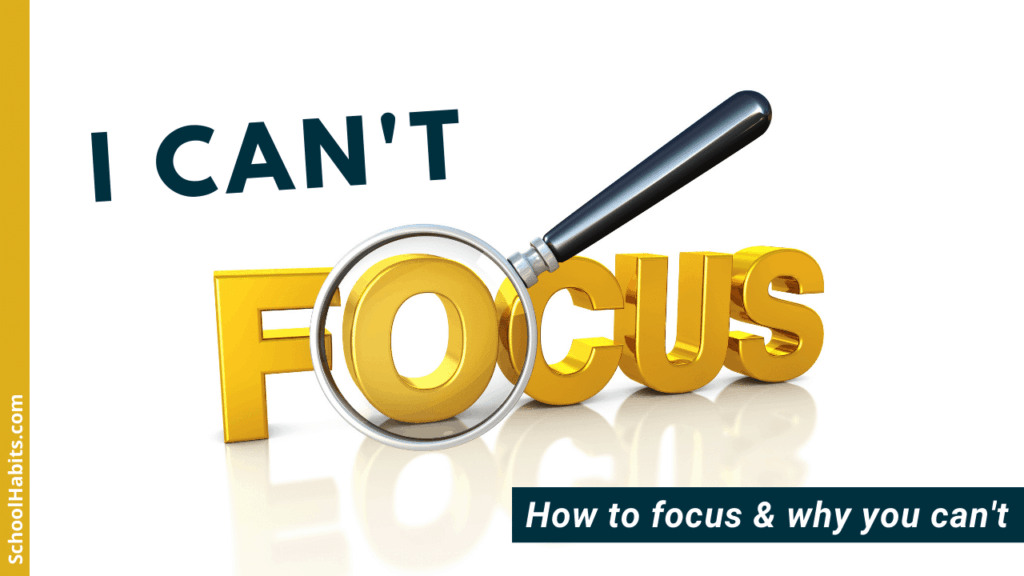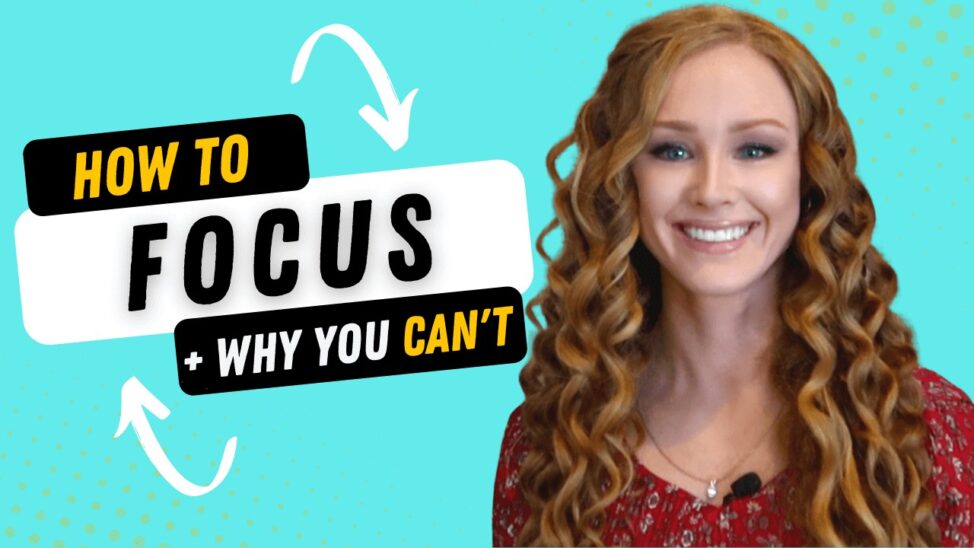By Katie Azevedo, M.Ed.
One of the most common frustration points my clients articulate is I can’t focus. This is usually followed up with questions about how to focus better, what focus strategies work best, and what’s the magic formula.
I hear this from all types of clients, including school-aged students and working professionals. I hear this from my students with ADHD and students without ADHD. I hear I can’t focus multiple times a day in one form or another.
The ability to focus is under the umbrella of executive function. Our executive functions are a critical set of skills that enable us to plan, organize, think flexibly, manage our time, and focus.
Almost all people with ADHD struggle with concentration, but so do those with executive dysfunction and no ADHD. (And honestly, every single person in the world is susceptible to poor concentration at some point or another, including me, the executive function expert.)
If you know or suspect you have executive function deficits, please know that you CAN improve those skills. That’s exactly why I created the Executive Function Journal, a 90-day journal that targets and builds key executive functions. It works, it’s simple, and you can learn more about it here.
In my experience, there are two main reasons behind the I can’t focus narrative.
In other words, focus issues almost always stem from one of the following:
- a ) I don’t know what to focus on
- b) I can’t focus long enough to get the right things done
The most important tip (first step) to learn how to focus better is to figure out if your issue arises from a or b above. Once you figure out the root cause (a or b) of your weak focus, you can use the correct strategies to get back on track.
Oh hey! Prefer to listen to this content as a podcast? Here you go!
Why can’t I focus?
To figure out whether you can’t focus because you a) don’t know what to focus on or b) you lack focus endurance, you need to do some work. Below are some characteristics of both types of concentration issues. Read through them, and see which one resonates the most. Keep in mind, we can shift back and forth between both types, depending on the task.
a) You likely don’t know what to focus on if you:
- procrastinate a lot
- are a perfectionist
- feel like you don’t have enough (or the right) materials to get started
- get anxious before sitting down to work, as if you might be doing it wrong
- don’t know where to start
- are constantly waiting for the “right” time to start
b) You likely lack focus endurance (the ability to concentrate long enough to see a task through to the end) if you:
- can only concentrate on a challenging task for 5-10 minutes before becoming distracted
- often disguise your distractions as “oh, let me just check xyz for a second”
- have an excessive amount of browsers open on your computer
- physically get antsy when working, like you need to get up and walk away
- get sudden urges to go do something “more important” while in the middle of a task
How to focus better
Okay, I figured out why I can’t focus. What’s next? Once you know the reason you’re unable to focus, you can use the right strategies to increase your concentration. Below are some tips for doing that.
a) If you don’t know what to focus on:
- Break down all large tasks (anything more than 2 steps) into smaller, 15-minute steps. Actually write down these micro-tasks on a piece of paper.
- Ask for help or Google it.
- Just start somewhere. If you just start, and it happens to be the wrong place, then you’ll figure that out soon enough – but you have to start.
- Learn how to prioritize, and start with items at the top of your list. Prioritization involves ordering tasks based on urgency, importance, deadlines, consequence, and resources.
b) If you lack focus endurance:
- Clear all distractions from your workspace. Seriously, put the darn phone in another room.
- Write down on a sticky note exactly what you’re working on and stick it someplace obvious in your workspace. Don’t underestimate the power of a visual reminder.
- Tell people in your household, living space or workspace that you are unavailable for a set period of time. Make your unavailability obvious by closing the door, using a do-not-disturb sign, or wearing headphones.
- Use time-based strategies such as the Pomodoro Technique.
- If your focus endurance is less than 10 minutes, then set a timer for 10 minutes and try to work without stopping. Then set a timer for 11 minutes, 12 minutes … and incrementally train your focus endurance over the course of a few weeks. (This works. Try it. It doesn’t happen overnight, but it works.)
If I can’t focus is your mantra, you’ve got to change your approach. If you have ADHD, then of course it’s not a simple matter of “just focusing more” (ADHD is not an issue of willpower!) – but it is still a matter of making a deliberate effort to improve your concentration.
You absolutely can learn how to focus better, but it starts with wanting to and then actually doing something about it. Next, head over to my tutorial called What to Do When You Just Can’t Focus for some more practical focus strategies.


